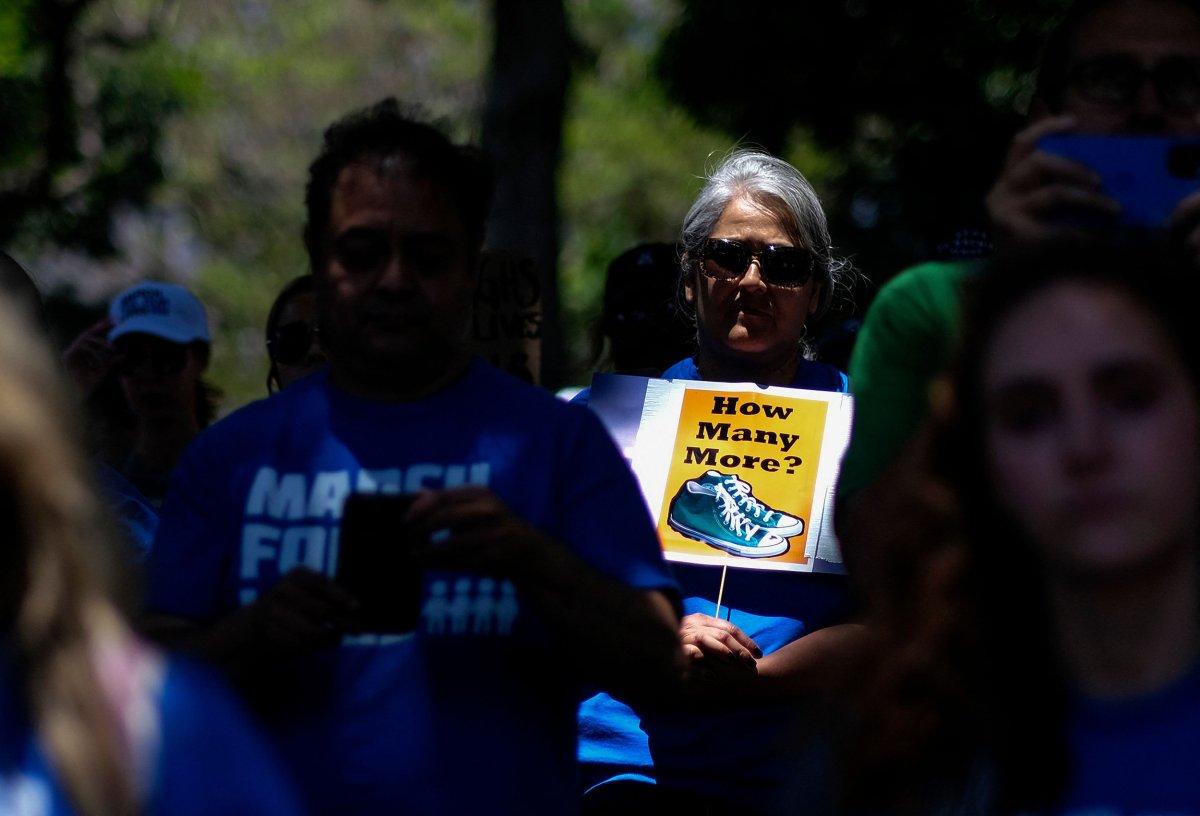In the wake of the recent tragic shootings at the University of Virginia, Club Q in Colorado Springs, and a Virginia Walmart, the same questions have been echoing in the public conversation: Why does this keep happening? And what can we do about it?
Advocates can seek and legislators can pass laws that attempt to address gun violence. But unless citizens are educated on how to use those laws to notify authorities and prevent tragedies, legislation is meaningless.
We study the passage of effective gun violence laws. We haven't finished our analysis, but we have gleaned some insights along the way.
First, the data we reviewed shows that gun violence is less often connected to severe mental illness, and more frequently arises from depression, anger or despair. The combination of personal crisis and easy access to a firearm is a volatile one. And for every shooter whose act hits the news and traumatizes its victims, there are many more who turn their anger and despair inward. Sixty percent of firearms deaths are suicides, mostly by middle-aged white men.
Active shooter incidents are extreme and terrifying, and their occurrence is good reason to put gun violence prevention laws on the legislative agenda even if they are hard to prevent. But the laws can also help save the many lives that were secretly lost because of the stigma of depression.
Moreover, the same suicidal symptoms can help identify potential public shooters. We learned from a recent FBI study that nearly half of active shooters showed signs of suicidal behavior prior to the shooting.
Our review also shows that in more than 85 percent of active shooter incidents, the perpetrator had no prior criminal record. But most perpetrators did or said something short of a criminal act that a close friend or family member found concerning, and usually, the concern wasn't reported. Although we don't yet know all the facts in the recent shootings, we know that the father of the alleged UVA shooter Christopher Darnell Jones said he was "paranoid" recently because he thought other students were picking on him. A student reported that he claimed to possess a firearm, which was not allowed in the dorms, although he did not make any threats. Fellow Walmart employees also said they knew "something was wrong with" Andre Bing, the manager who shot six employees on Nov. 22, and that he said he would retaliate if fired. Similarly, Anderson Lee Aldrich had previously been arrested in relation to a bomb threat before he went to Club Q and began shooting.
We should stop treating perpetrators as unpredictable criminals, and instead respond to them as people who are in crisis and need intervention.
Over half of states allow the removal of guns from those who are subject to a domestic violence protective order. And a little over a third of states, including Virginia, have passed Extreme Risk Protection Order laws, also known as red flag laws, that allow authorities to get a warrant to temporarily remove firearms from someone in crisis based on information provided by friends and family members. The laws vary in the details, but recent federal legislation incentivized states to pass these laws as long as they contain certain protections against abuse.

The keys to the success of extreme risk laws are twofold: Public awareness of how they work, and the initiative of those close friends and family members who hear or see concerning things from loved ones.
The use of extreme risk laws varies widely by state. In Virginia, since the state's extreme risk law became effective in July 2020 through the end of 2021, only a third of Virginia counties reported at least one petition filed, and there were 175 total petitions. By comparison, in Maryland, every county has reported petitions and they number 700 to 800 annually. While this may be because the laws operate differently, many are simply unaware of the existence of extreme risk laws, or are afraid to use them.
Extreme risk laws ensure that no one is denied access to their guns without due process. A judge will always decide whether the evidence is enough to act on initially, and the removal will be only temporary—usually one or two weeks—if it turns out to be a false alarm. Gun violence prevention groups maintain a list of states that have extreme risk laws, and many states have resources online on how to use them.
In spite of the protections extreme risk laws offer, recent research suggests that some in law enforcement are not fully on board with these policies. More sheriffs oppose these laws than support them, which could further inhibit their use.
It's easy to feel hopeless in the face of yet another public shooting. But there are things you can do. Familiarize yourself with your state's law, particularly if you have a loved one who is at risk of suicide or other violent behavior. Encourage your elected sheriffs to embrace these laws to support community safety. If your state does not have such a law, reach out to your state legislators and urge them to adopt one. And then, when the time comes, take that additional step—use the law to help protect us all from gun violence.
Sarah Shalf is a professor of law, general faculty, at the University of Virginia.
Kirsten Widner is an assistant professor of political science at the University of Tennessee, Knoxville.
The views expressed in this article are the writers' own.
Uncommon Knowledge
Newsweek is committed to challenging conventional wisdom and finding connections in the search for common ground.
Newsweek is committed to challenging conventional wisdom and finding connections in the search for common ground.
About the writer
To read how Newsweek uses AI as a newsroom tool, Click here.








